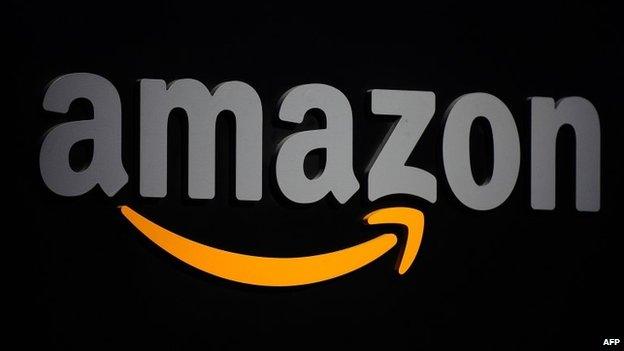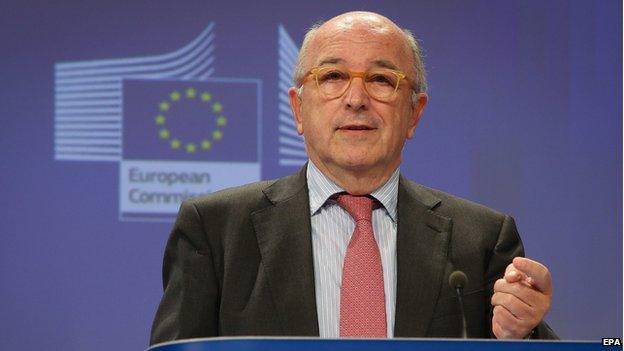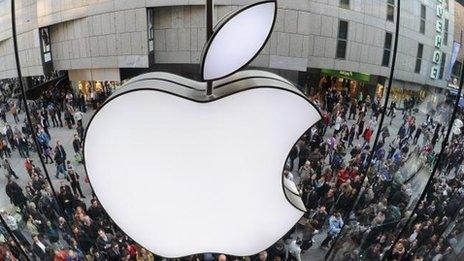Amazon faces European Union tax avoidance investigation
- Published

Amazon's tax agreement with Luxembourg was struck in 2003
Amazon, the online retailer, is to face a formal investigation into its European corporate tax practices, the European Commission has announced.
The Commission - the executive division of the 28-member European Union - says it will look at the tax agreement made between Amazon and Luxembourg.
It suspects the deal amounts to state aid and a distortion of competition.
But in a statement, Amazon said it had "received no special tax treatment from Luxembourg".
Most of Amazon's European profits are "are recorded in Luxembourg but are not taxed in Luxembourg", said EU competition commissioner Joaquin Almunia.
Royalty payments
Explaining how the alleged tax avoidance worked, Mr Almunia said: "The Amazon subsidiary in Luxembourg records most of the group's Europe profit. It pays a royalty to another entity in Luxembourg…
"At this stage we consider the amount of this royalty, which lowered the taxable profits of Amazon, was not in line with market conditions. Luxembourg agreed to limit the amount subject to tax."
But Amazon has denied any wrongdoing, saying "we are subject to the same tax laws as other companies operating here."
And Luxembourg's finance ministry rejected the Commission's allegations as "unsubstantiated", saying "no special tax treatment or advantage has been awarded to Amazon."
The agreement between Amazon's European business and the Luxembourg government was struck in 2003, the Commission said.
Shifting profits
The EU's investigation into Amazon follows on from other investigations into computer giant Apple, coffee chain Starbucks, and the financial arm of carmaker Fiat.
"It is only fair that subsidiaries of multinational companies pay their share of taxes and do not receive preferential treatment which could amount to hidden subsidies," said Mr Almunia.

The EU's competition commissioner Joaquin Almunia wants multinationals to pay their "fair" share of tax
The EU has been concerned for many years about the ability of multinationals to structure their companies in such a way that they pay as little tax as possible, shifting profits and costs between divisions in different countries.
It has accused some countries, such as Ireland, the Netherlands and Luxembourg, of helping companies avoid tax.
For example, the Commission believes Ireland gave illegal state aid to Apple.
Ireland's corporate tax rate is set at 12.5%, but Apple enjoys an effective tax rate of 2%, due to the way it channels overseas sales through its subsidiaries.
Apple has denied that it received any "selective treatment" while the Irish government has rebuffed claims that its actions breached EU rules.
Companies found guilty of breaching EU rules on state aid could be forced to repay what Brussels calculates as the amount of financial benefit they have received.
- Published30 September 2014
